 A squirrel![1] I find a lot of them while researching and I am sure all other researchers find them, too: those pieces of information that have nothing to do with what you are researching. You come across them by accident and they pull your attention away from what you are trying to find because they are equally or sometimes more interesting. Sometimes it is a quick tangent – and sometimes squirrels can lead to an entirely new path of research that sticks with you for a long time. Continue reading Chasing a squirrel
A squirrel![1] I find a lot of them while researching and I am sure all other researchers find them, too: those pieces of information that have nothing to do with what you are researching. You come across them by accident and they pull your attention away from what you are trying to find because they are equally or sometimes more interesting. Sometimes it is a quick tangent – and sometimes squirrels can lead to an entirely new path of research that sticks with you for a long time. Continue reading Chasing a squirrel
Tag Archives: Brick Walls
Northeastern University’s roots
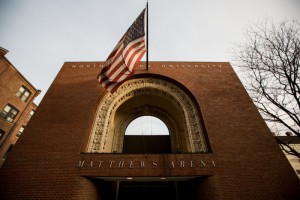
Genealogy is the never-ending story of your ancestors as you track them down and learn about the lives they lived. It is also the opportunity to learn about the communities in which they resided. Recently, I had the opportunity to learn a little bit more about the place I now reside and about a university that I visit a lot from October to March, spending many weekend evenings in Matthews Arena, the oldest indoor ice hockey arena still in use for the sport. Continue reading Northeastern University’s roots
Browse the images online
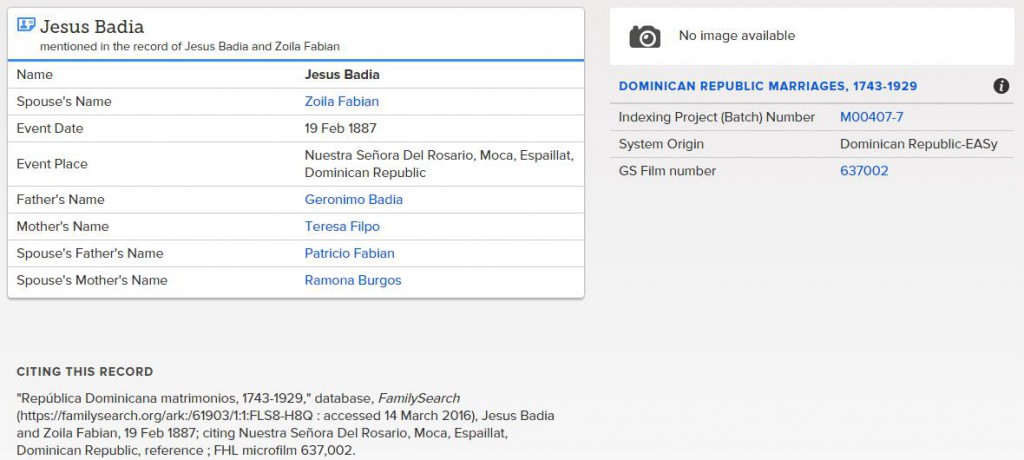
Often, when I’m looking at records on FamilySearch.org, I find source records in two categories: 1) “Browsable” (images only, no searching capability), or 2) “Searchable” (abstracted with various fields from the record). Sometimes, within the Searchable category, records will be linked to the images of the source records. In other instances, no image is available, but a link to the Family History Library film number is given. One can always then rent the microfilm to view the original record. However, before you rent the film, check the catalog, as you may be able to view the original record online, albeit in a slightly roundabout way. Continue reading Browse the images online
Middlesex County court records

When researching a family, one can quickly become focused on names, birthdates, and death dates. It is easy to get caught up on going as far back as possible until reaching the metaphorical brick wall, and being left with a “well, what do I do now?” mentality. Seventeenth-century immigrants can be incredibly difficult to trace and track, but learning about them in public records can help add meaning and information about their lives. Continue reading Middlesex County court records
An untapped genealogical resource
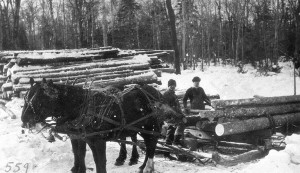
Long before I loved genealogy, I fell head-over-heels for oral history. My great-grandfather, Everett Eames, died in 2005. By that time, I was nineteen, and had been regaled with stories of his years in the logging camps of northern New Hampshire and Maine for over a decade. Everett had a long, colorful life. After working in the lumber camps, he opened Eames Garage in Errol, New Hampshire, before working in the shipyards of Bath, Maine, during World War II. Continue reading An untapped genealogical resource
“On the most reasonable terms”
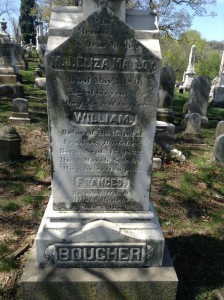
A recent Google search brought me to a page of links to various Baltimore city directories, and I thought it might be useful to make some notes sorting out my Baltimore great-great-grandfather William Boucher Jr. (1822–1899) and his father, E. W. Boucher. As I’ve mentioned elsewhere, my mother’s stories on the Bouchers tended to dwell on their descent from the court painter François (1703–1770), but in fact the Baltimore Bouchers were musicians before they were painters, and the mid-nineteenth-century father and son were businessmen as much as they were artists.[1]
In 1845, Wm. Boucher’s music store is found at two addresses on Holliday Street, but it appears (from the directory’s “Removals, Alterations, Additions” page) that the reference is to one man, first at 11 and then at 4 Holliday Street. Continue reading “On the most reasonable terms”
Baseball’s Biography Project

A total of 18,337 men have taken the field throughout the history of Major League Baseball (18,663 if the National Association is counted as major league, a point of contention among baseball historians).[1] Under their “Baseball Biography Project,” the Society for American Baseball Research (SABR) has sought “to research and write comprehensive biographical articles on people who played or managed in the major leagues, or otherwise made a significant contribution to the sport.”[2] Thus far, researchers for SABR have completed 3,591 biographies, a significant number when one considers that historians still do not know the place of birth for 72 players throughout the history of baseball.[3] Continue reading Baseball’s Biography Project
Coming home
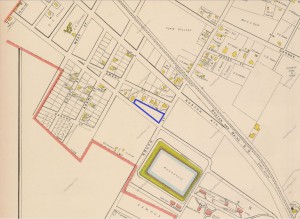
Recently, I moved from my hometown of Dedham to Medford, Massachusetts. I never really thought about it, but I had always assumed my family had no connections to places north of Boston. My mother and her siblings grew up in Needham (in Norfolk County), and my maternal grandfather and grandmother were raised in Dorchester and Roslindale, respectively. Continue reading Coming home
Tracing your African roots at NEHGS

From tracing free people of color in New England to identifying former slaves in the deep south, NEHGS can help you tell your family story. We have a number of guides and tools in our library and available through our education department and online databases that can help you jump start researching your African American roots all over the United States, not just New England. Continue reading Tracing your African roots at NEHGS
Québec notarial records
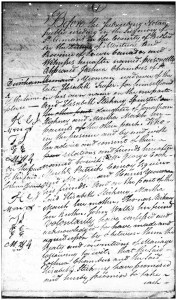
If you descend from French-Canadians, or your ancestors spent some time in Québec, notarial records will be an important source to examine in your research. In Québec, notaries recorded wills, property transactions, inventories, guardianship records, business contracts, and more. Some early notarial records even include marriage contracts. These records will undoubtedly aid your research and provide a wealth of information regarding your ancestors.
First and foremost, you have to establish which notaries practiced in the judicial district where your ancestor lived. To do so, you can consult finding aids. Here at NEHGS, we have finding aids located on the 4th floor, which list notaries alphabetically by surname and by judicial district. The years that each notary practiced are also listed. In our collection, we also have Robert J. Quintin’s The Notaries of French Canada, 1626-1900, a very helpful published finding aid. Each of these finding aids also lists the area that each notary served within a judicial district, like Champlain or Chambly. Continue reading Québec notarial records